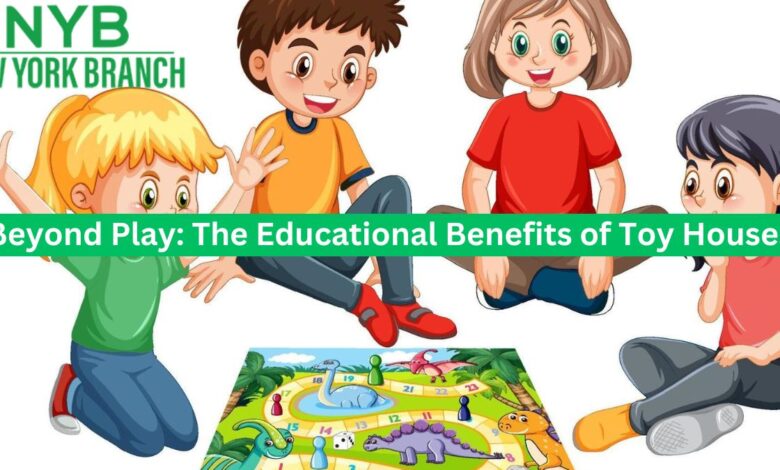Beyond Play: The Educational Benefits of Toy Houses

Toy houses have been a beloved staple in children’s playrooms for generations. These miniature abodes are not just sources of entertainment; they also offer a plethora of educational benefits that go beyond play. So, read on and explore the various ways in which toy houses like the Sylvanian Families house can enhance a child’s cognitive, social, and emotional development, making them an invaluable addition to any learning environment.
Spatial Awareness and Problem-Solving
One of the key advantages of toy houses is their ability to nurture spatial awareness and problem-solving skills in children. As kids arrange furniture, figures, and accessories within the miniature setting, they develop an understanding of space, proportion, and spatial relationships. This hands-on exploration fosters critical thinking as they determine where each element fits best and how to create a cohesive living space. Such problem-solving exercises can be incredibly beneficial for their cognitive development, as these skills translate into real-life situations where spatial reasoning is essential.
Creativity and Imagination Toy Houses
Toy houses provide an open canvas for a child’s imagination to run wild. Without predefined rules or scripts, kids can create their own stories, scenarios, and characters within the miniature world. This unstructured playtime encourages creativity as they invent narratives, imagine different roles for the figures, and construct unique environments. This imaginative play enhances their storytelling skills and fosters their ability to think outside the box—a crucial skill that will help them well in various aspects of life.
Language and Communication Skills
Engaging with toy houses often involves collaboration with siblings, friends, or even parents. Through these interactions, kids learn to communicate effectively, express their ideas, and negotiate with others. They develop a shared vocabulary as they discuss their play scenarios, describe the actions of their miniature inhabitants, and convey their thoughts and feelings. This enhanced language development can have a lasting impact on their ability to communicate clearly and confidently in the future.
Emotional Intelligence and Empathy
Playing with toy houses allows children to explore and understand complex emotions in a safe and controlled environment. They can create scenarios where the miniature figures experience joy, sadness, anger, or fear, enabling them to develop empathy and emotional intelligence. As they navigate the emotional ups and downs of their tiny world, children learn to recognise and manage their own feelings while also gaining a deeper understanding of the emotions of others. This heightened emotional awareness is a crucial skill that can positively influence their relationships and interactions.
Fine Motor Skills and Attention to Detail
The act of setting up and arranging a toy house demands precision and attention to detail. Children must handle small accessories, place them in specific locations, and make sure everything is just right. This meticulous work improves their fine motor skills, hand-eye coordination, and patience. Additionally, focusing on the tiny elements within the miniature world enhances their attention span and concentration. These skills are transferable to various academic tasks, such as writing, drawing, and problem-solving activities.
Conclusion
Toy houses like the Sylvanian Families house are not just playthings; they are valuable tools for fostering a child’s cognitive, social, and emotional development. From enhancing spatial awareness and problem-solving skills to nurturing creativity, language, and emotional intelligence, these miniature abodes offer a wide range of educational benefits. As children immerse themselves in imaginative play, they unknowingly acquire valuable life skills that will serve them well into adulthood. So, the next time you see a child engrossed in their toy house, remember that they are not merely playing – they are learning and growing in ways that extend far beyond the boundaries of their tiny home.



